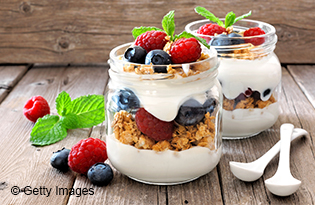Skip 'Ultra-Processed' to be 'Ultra-Nutritious'
6/3/2024 by Michaeleen Burroughs, M.S., RDN, LD

While "ultra" might be a prefix you want to see in front of the word "comfort" when buying a pillow or mattress, when describing processed foods "ultra" does not necessarily mean better. New research is linking ultra-processed foods to potential health risks.
You can buy food at the grocery store "au naturel" – in its natural state, nothing added. Fresh fruits and vegetables are examples. These foods are not manufactured by processing.
Many processing techniques enhance food storage but do not add sugar, salt, oils, fats or additives to the original foods. Freezing, pasteurization and vacuum packaging are examples that improve shelf life and help consumers eat a wide variety of nutritious foods.
Then there are ultra-processed foods. These foods are industrially formulated or synthesized from natural foods or other organic compounds such as food additives, preservatives, colorings and flavorings. You can easily spot ultra-processed foods with their long ingredient lists. Examples are ready-to-eat packaged snacks, mixes, pastries, instant meals or soups. While convenient, these foods should be used in moderation in a healthy diet.
A diet with excessive amounts of ultra-processed food can be linked to health conditions ranging from poor sleep and obesity to diabetes, cancer and heart disease.
Some simple changes can help limit ultra-processed foods from your diet.
- Swap regular soda for water flavored with fresh fruit slices.
- Choose whole fruits and vegetables for snacks.
- Choose whole wheat bread with few additives instead of white bread.
- Make homemade boiled, baked or roasted potatoes rather than pre-made mashed potatoes or potato flakes.
- Eat oatmeal with berries for breakfast instead of sweetened cereals.
- Make homemade yogurt parfaits instead of ice cream.
A healthy diet includes a variety of fruits, vegetables, whole grains and protein sources. In short, for an ultra-nutritious diet, go light on ultra-processed foods!
Michaeleen Burroughs, MS, RDN, LD, has practiced at Mayo Clinic for 33 years. Primary care has been the focus of her practice. Her special interests are in diabetes, weight management and building healthy eating habits for individuals and families.
